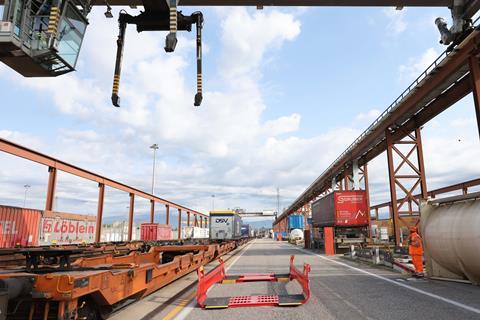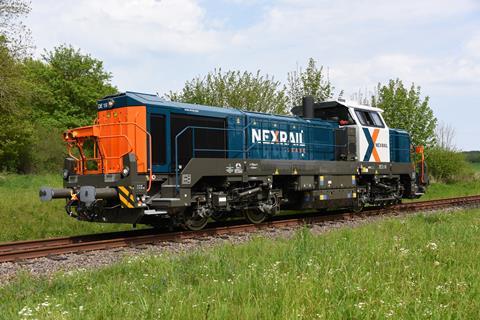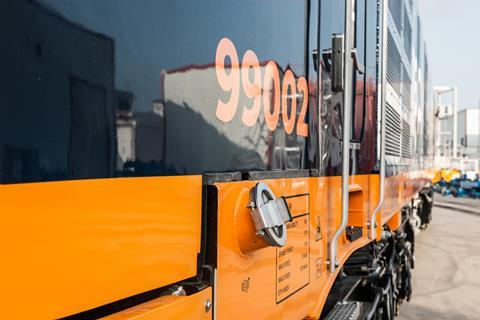
Wascosa is to supply the LTG Cargo Polska subsidiary of Lithuania’s national freight operator with 36 NiKRASA 3.0 adapters which allow non-craneable semi-trailers to be loaded onto wagons quickly and easily. These will be used to develop intermodal traffic on the Kaunas – Duisburg corridor.
The New Zealand government is to establish a state-owned company to procure two new RoPax ferries to move people and freight between the North and South Islands from 2029. Finance Minister Nicola Willis said ‘the costs are expected to be much less’ than the previous attempt at replacing the current vessels. The working assumption is they will be operated by KiwiRail, but alternative private sector proposals are invited. It is envisaged that the ships would not have rail tracks, with road bridging to be used as ’a cost-effective option to maintain rail connectivity’.
Local services from Union Pacific’s Eugene Yard in Oregon are to be transferred to Genesee & Wyoming’s Central Oregon & Pacific Railroad. The railways said this will allow UP to reduce the number of times a wagon is handled and create greater efficiencies, while providing more flexibility for both operators to meet current customer needs and anticipated growth.

The European Union Agency for Railways has granted vehicle type approval for France, Belgium and Luxembourg for two Vossloh Rolling Stock DE 18 series diesel locos, including the diesel-battery DE 18 SmartHybrid. The assessment was carried out by Certifer Belgorail.
The Broe Group has acquired a former Kellogg’s factory in Atlanta where it plans to develop an industrial facility served by its OmniTRAX subsidiary’s Fulton County Railroad.
ADIF has awarded Setemar a €9·4m contract to manage the Can Tunis intermodal terminal near Barcelona. The contract runs for 10 years, with an option to extend for a further 10 subject to the manager investing more than €900 000 in the site.

GB Railfreight has announced that its Stadler Class 99 electro-diesel locos will operate solely on electricity or renewable fuels such as Hydrotreated Vegetable Oil when they enter service in late 2025.
Two US Consolidated Rail Infrastructure & Safety Improvements grants to Colorado State University Pueblo and the University of Delaware will be used to support Federal Railroad Adminsitation approval of OptiFuel’s proposed diesel-renewable natural gas dual-fuel hybrid shunting loco in 2026 and a main line version in 2027.














